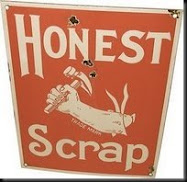 |
Development of the machine, which uses a centrifuge to separate the fluids, has been backed by actor Kevin Costner to the tune of $25 million.
John Houghtaling, Costner's chief partner in the project, told WWL First News that the oil company has ordered 32 of the devices for use in the Gulf of Mexico.
"In a matter of weeks, we can be manufacturing ten of these a week," Houghtaling said. "So we're hoping by the first of August to have all 32 of these things in the Gulf."
Listen to Houtaling talk about the deployment of the device:
According to Houtaling, the machines cost roughly half a million dollars to build, but also require the hiring of vessels to take them out onto the water.
Though the world-famous actor and Houtaling are both pleased that BP has now agreed to deploy the devices, Costner told members of Congress earlier this week. that he'd had a hard time getting an opportunity to try out his centrifuge for the Coast Guard.
"We would offer to take our machines out there but we couldn't get onto the spots because the Coast Guard would regulate that we couldn't get there," Costner testified.
Houghtaling said that in addition to providing clean-up duty in the gulf, deployment of even more of the devices could aid in shortening the six-month moratorium on deep-water drilling.
He said that he'd like to see the government use the machines as a safety measure to keep the deep-water drilling rigs in operation as safety procedures are reviewed.
"By the end of August...our company can have thirty-three of the machines around the rigs. If there's a spill, we can deploy," Houtaling said.
To view an animation of how the device works, click the window below:
Meanwhile Costner's company is moving toward leasing 16 more oil sucking and separating machines to Plaquemines Parish officials directly. They say if BP won't pay for that, they may sell the oil local officials pull from the water and fund the machines that way.
So good, maybe this will work in the short term but what about long term and our dependence on oil? Are we ever going to reduce our dependence and is that realistic? Here's some of the reasons why I don't think it's realistic...

Graphic shows products made from a barrel of crude oil, including household products
WASHINGTON, D.C. -- So the Gulf oil spill has you ready to quit petroleum cold turkey? Louisiana's brown pelicans have more of a chance of avoiding Big Oil than you do.
Merely parking the car and riding a bike won't cut it. Your sneakers and bike have petroleum products in them. Sure, you can shut off the AC, but the electric fans you switch to have plastic from oil and gas in them. And the insulation to keep your home cool, also started as oil and gas. Without all that, you will sweat and it'll be all too noticeable because deodorant comes from oil and gas too.
You can't even escape petroleum products with a nice cool fast-food milkshake -- which probably has a petrochemical-based thickener.
Oil is everywhere. It permeates our daily lives in ways we never think about. It's in carpeting, furniture, computers and clothing. It's in the most personal of products like toothpaste, shaving cream, lipstick and vitamin capsules. Petrochemicals are the glue of our modern lives and even in glue, too.
Sickening isn't it....Looks like drilling is here to stay but that doesn't mean it can't be done safely. Looks like that is up to you Mr. President. There MUST be safety before profits...




































7 comments:
Does anyone know what the Property Taxes are in either Orleans or Jefferson Parish, Louisiana, on a house with an appraised value of approximately $250,000?
Would you believe, less than $400?
No matter that these are the worst public schools in the free world (since nearly everyone sends their kids to private or parochial schools). No matter that the roads are ghastly. What is true is that Oil & Gas pay for everything.
Doesn't that make sense when you hear everybody from the Governor to the US Senators to the guy who runs the oyster-shucking plant in Grand Isle say "End the Moratorium", Mr. President. These people are on the pay-roll of Big Oil, and they show themselves for what they are when they realize that they can't kill the canary.
Frodo sincerely hopes that Costner's oil-sucking machine sucks all of the oil out of the Gulf. But even if it does, these refugees from 1950 still don't get the message.
Maybe this disaster is God's way of kicking butt?
Take notes Mr. President.
Sue, if Costner's machines suck up oil half as well as Republicans suck up to oil companies, there may be some hope.
Frodo makes a good argument for Louisiana, but ignores all the other coastline on the Gulf that deep water drilling puts at risk.
Off topic: Sue, I just noticed your header. ROTFLMAO!!
I'm sure that we could find some other oil to substitute for our vast collection of plastic products, but since crude has become so easy to come by, we haven't bothered. Doesn't anyone realize that in about 20 years we're going to completely out of oil? Time to get moving scientists.
Those people on the oil payroll are sickening. Vitter and Jindal calling for the release of the moratorium are idiots - waiting for the next disaster anyone. What assholes.
Frodo that is excellent observations from you! No wonder Barbour is an hysterical wreck, Jindal and Vitter too.
Lisa, TC and Frodo, I sure hope these Costner machines do the job, but lots of work still ahead even after the hole is plugged. This president has an enormous job ahead of him, I hope he does the right thing. Hey remember the good ole days when all our food items were in glass? I know plastics are terrible for the environment but what about the other things? We need some scientists to get to work Lisa, you are right on that point!
I hate to whistle in the graveyard, but I think its too little too late.
The first shoe to drop was the aftermath of Katrina; scientists gave a laundry list of what needs to be done on the Gulf Coast, chief among them was RESTORE THE WETLANDS. Instead of following their recommendations the US government did nothing, and Louisiana intensified its unholy alliance with Big Oil (and don't forget Democratic Sen Mary Landrieu- along with fellow culprits Vitter and Jindal).
And the City Fathers in New Orleans? Having a Super Bowl or two will solve everything. Talk about shortsighted.
Guys...this isn't merely a disaster; this borders on cataclysmic. There is a very good chance that the wetlands and barrier islands protecting New Orleans will be history. And we all know the immediate ramifications involving the impact on the Gulf Coast, we've gone over that again and again.
But what about the ecological impact on the rest of the nation, even if the spill is contained in the Gulf?
East of the Mississippi waterfowl that winter and nest in the Gulf will be displaced and many will die from the toxicity. Birds migrating to South America (like swallows) will die....and the insect population of North America will rise because those birds control insect numbers.
And the Monarch butterfly that migrates to Mexico each year? Take a good look; because of the spill they might face extinction, if not this year but soon.
I know this was a little long winded....but I have more here, but be forewarned; I love Barack Obama, but I cannot and will not give him a total pass on this either.
This is bigger and more impactful than any could have foreseen, and it should and does transcend the axiom of all politics being local.....or personal.
Hugh I can't bring myself to believe the doomsday scenerio. We are the USA and we will get thru this, I really believe that. We need to bring together all the best of the best and smartest of the smarts and we will come up with the answers! Have faith!
Well, I guess if we deployed 10,000 of these oil-separating centrifuges per every square mile of the affected are of the gulf, or one every 50 feet or so, maybe with 10-20 twenty years of continuous operation we could make a sizable dent in the problem.
Post a Comment